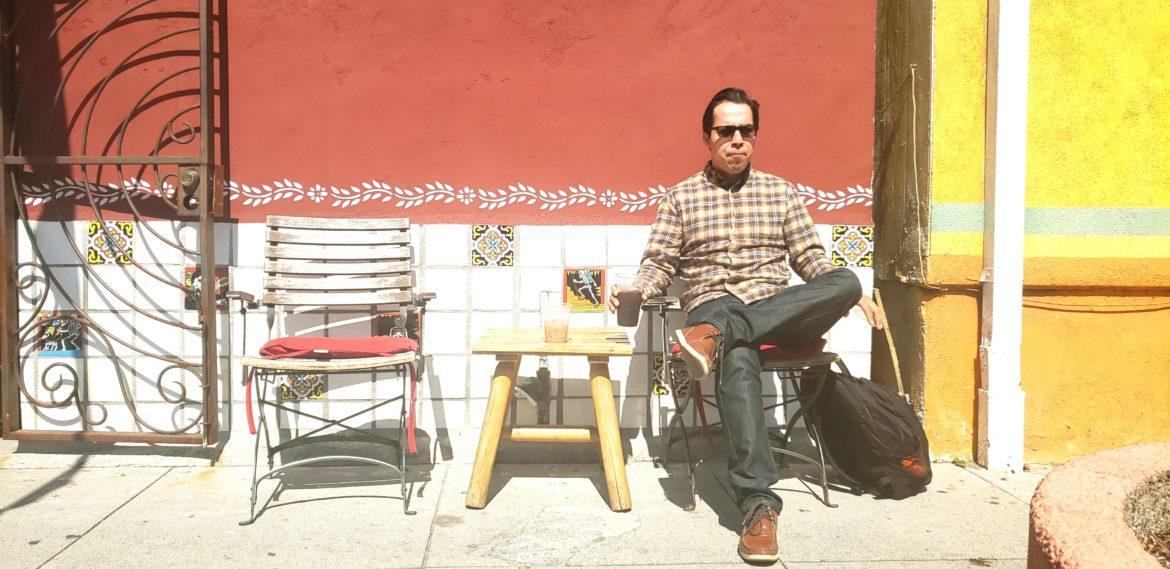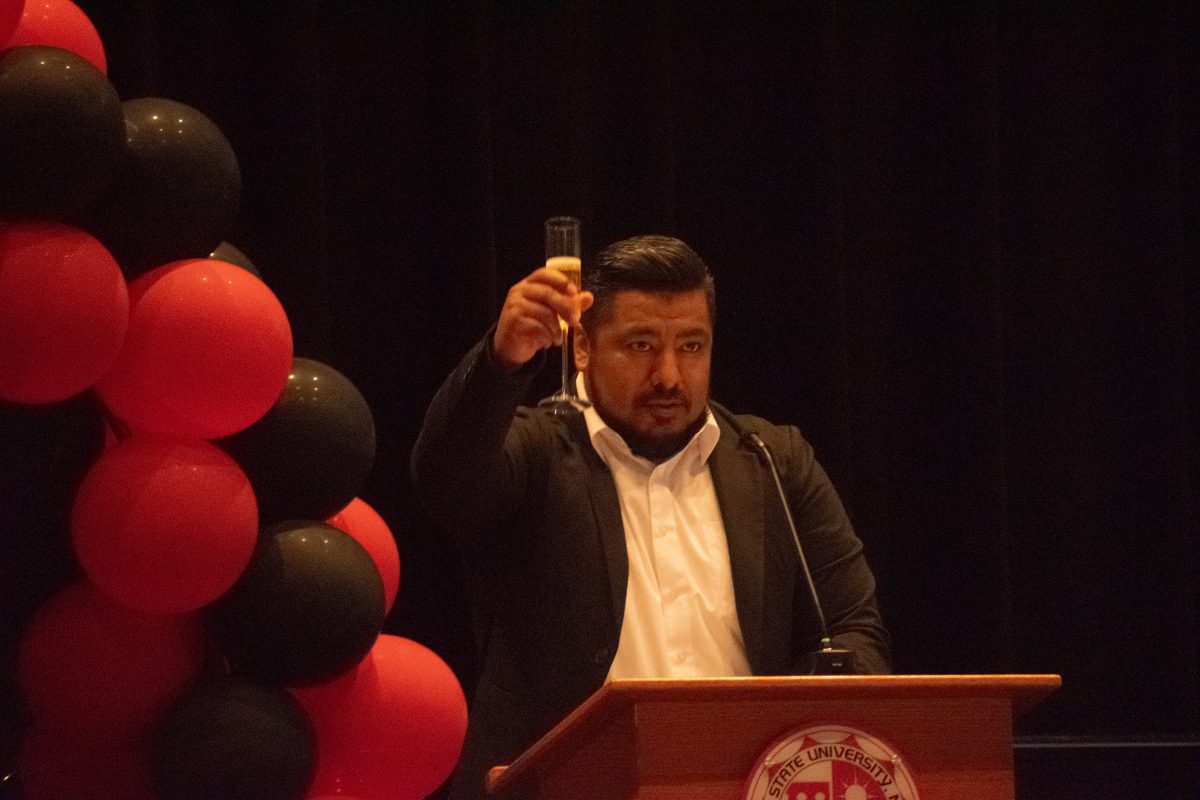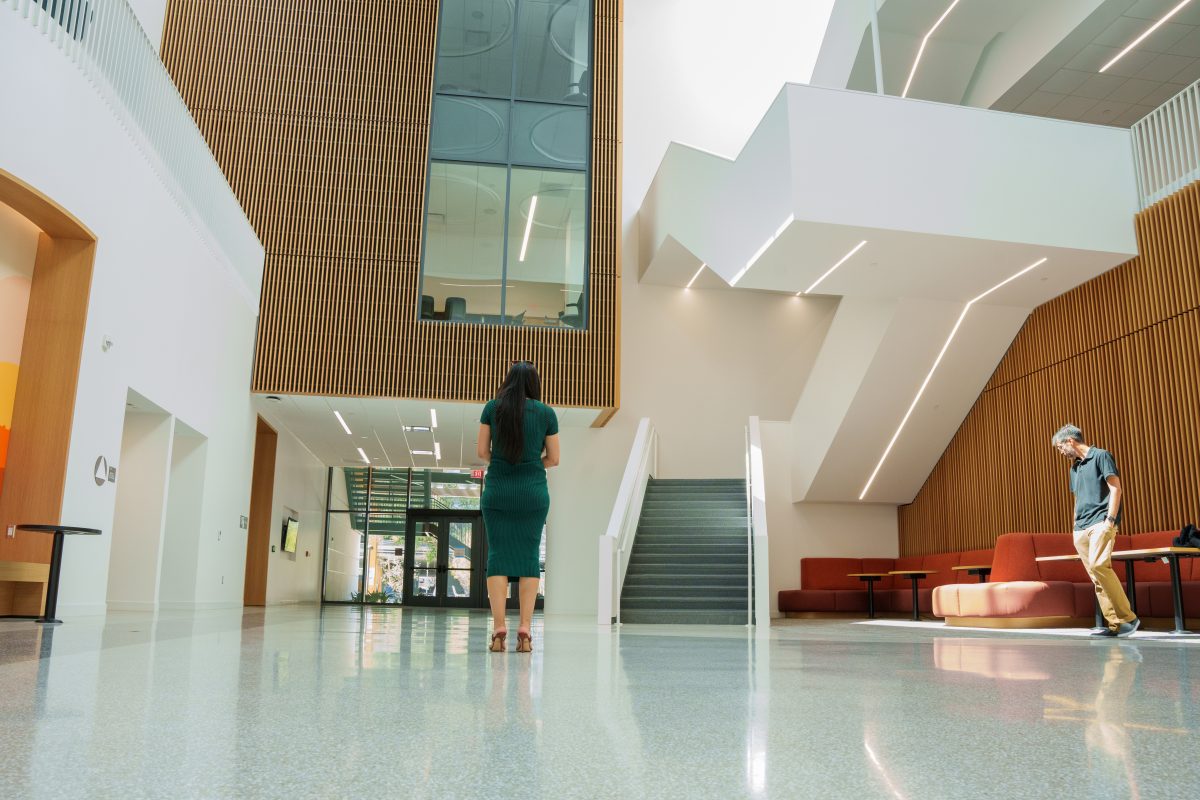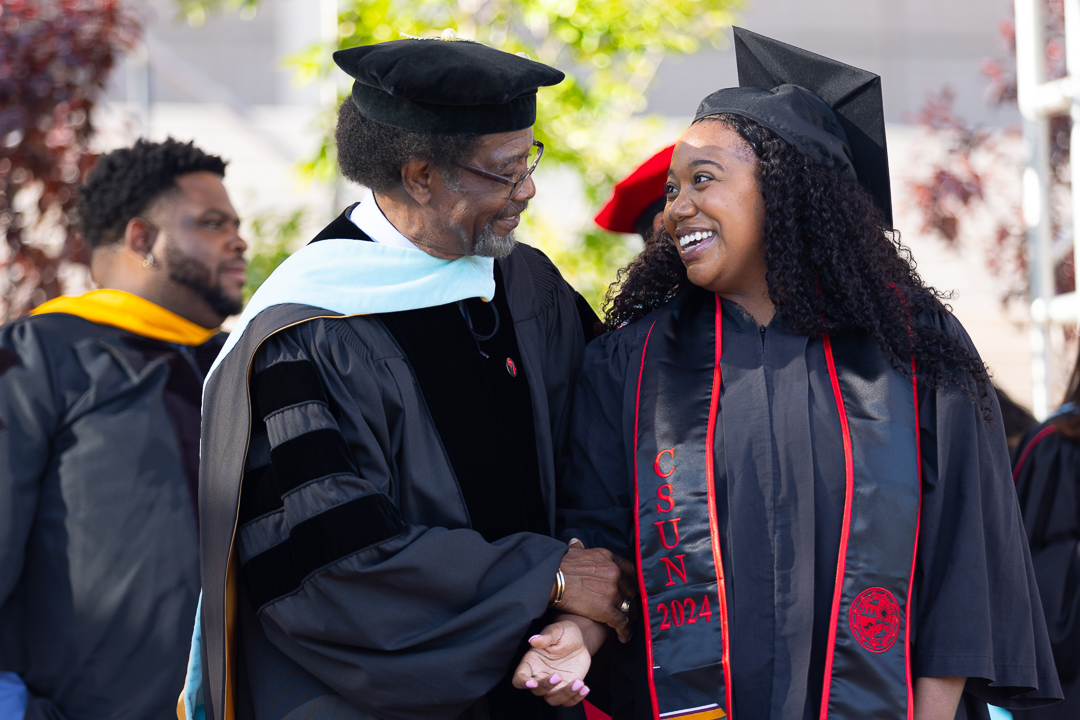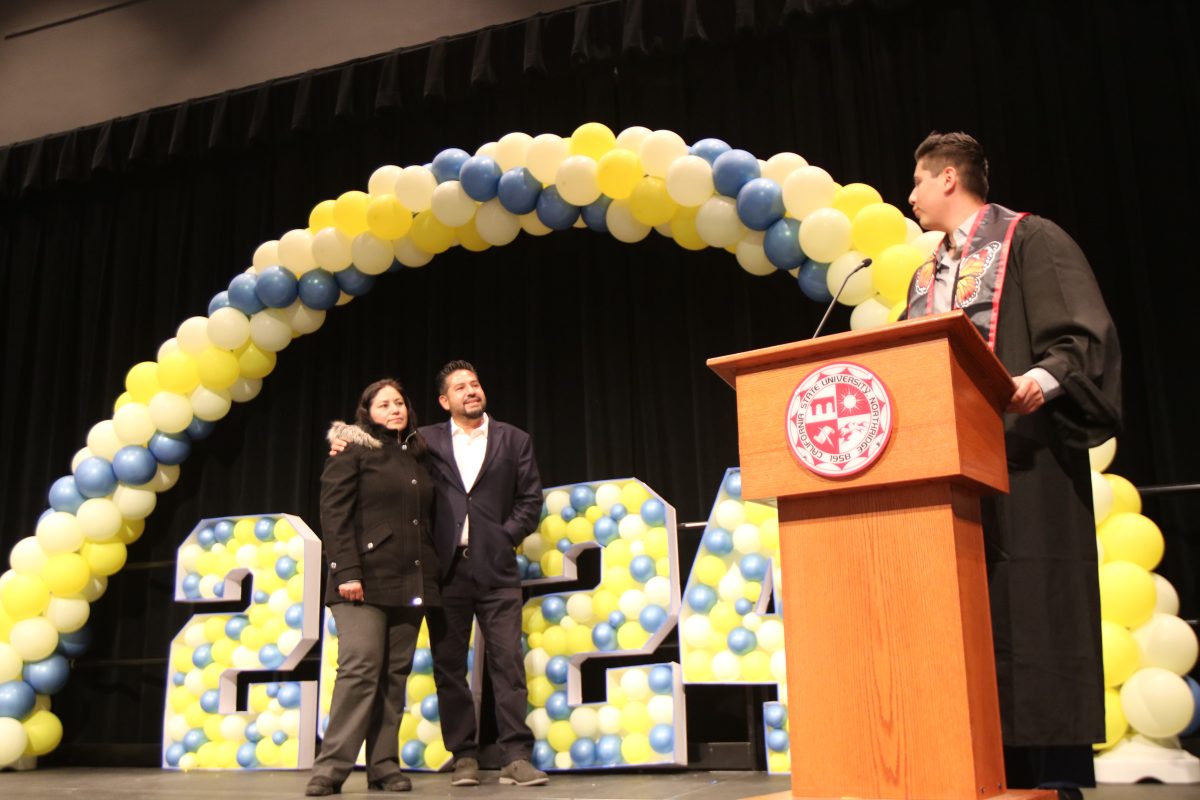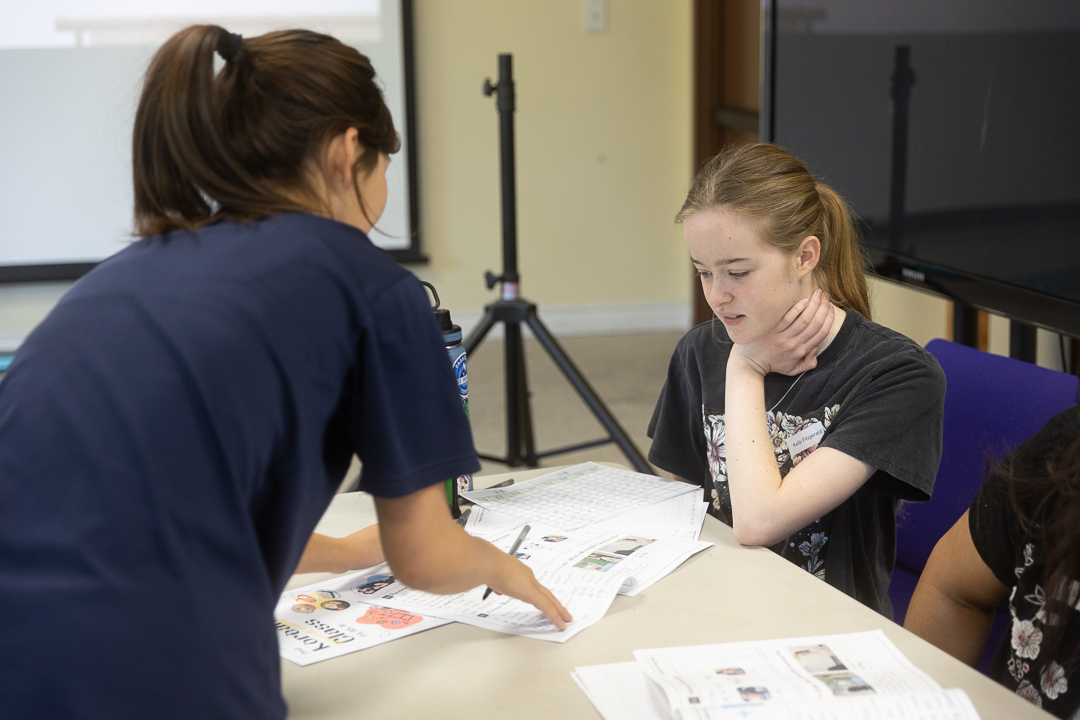Reported also by Byron Gonzalez
“I always knew I was undocumented. I came to full realization of this when my parents made me hide under a car to cross into the United States at six years old.” For Mario Torres, his memory of crossing the Mexican-American border in 2001 is as vivid as any other.
Torres is one of the estimated 30 million undocumented people that reside in the United States. Just under 800,000 of them were safe from deportation under the recently terminated Deferred Action for Childhood Arrivals or DACA.
While many DACA recipients were young when they came to the U.S., not all of them remember entering. Most were unaware of their legal situation until they were older.
DACA recipients such as Daniela Loza, Dario Guerrero and Melody Klingenfuss all found out they were undocumented when they began applying for higher education.
Mariam Tellez, another recipient, says she was aware of her status but wasn’t able to grasp the challenges that could arise from lacking citizenship until it came to applying for college.
“I was seven when I arrived,” Tellez said. “Even though I understood being undocumented, I didn’t know what it meant. We were like other people except for that.”
Former President Barack Obama set DACA into action on June 15, 2012. If the requirements were met, young undocumented people received protection against deportation. It also gave them temporary legal status to be able to apply for college and to seek or continue employment.
The guidelines for DACA consideration were:
- Under the age of 31 as of June 15, 2012;
- Came to the United States before reaching their 16th birthday;
- Have continuously resided in the United States since June 15, 2007, up to the present time;
- Physically present in the United States on June 15, 2012, and at the time of making requests for consideration of deferred action with USCIS;
- Had no lawful status on June 15, 2012;
- Are currently in school, have graduated or obtained a certificate of completion from high school, have obtained a general education development (GED) certificate, or are an honorably discharged veteran of the Coast Guard or Armed Forces of the United States;
- Have not been convicted of a felony, significant misdemeanor, or three or more other misdemeanors and do not otherwise pose a threat to national security or public safety.
This also gave most undocumented college students the ability to apply for federal financial aid.
“I was in community college and I had enough scholarships where I could pay for my first year, but my sisters already had to pay so much,” said Torres. “For DACA to be enacted, I thought ‘hey, that means now my family doesn’t have to struggle paying for three students’ and we were able to worry about actual school and not how we were going to pay for school.”
With ending the DACA program as one of his campaign promises, Donald Trump was elected president in 2016. Almost a year later, the program was rescinded by Attorney General Jeff Sessions in September 2017. By the end of that year, all DACA applicants were unsure about their immigrant status. They also feared facing possible deportation to a country that they know nothing about.
A recent bill proposed by members of Congress in early March of this year, named the Dream and Promise Act (H.R. 6), could potentially give over 2 million undocumented immigrants permanent residence in the U.S. and provide temporary humanitarian protection. If the bill passes, it would be the largest immigration bill since 1986.
“It’s like DACA on steroids,” said Klingenfuss.
Klingenfuss came to the U.S. from Mexico at the age of nine. She describes herself as smart and determined, shining throughout high school with a 4.0 GPA. When it came to applying for college, USC was her dream school but she was unable to apply due to her legal status and tuition cost. This angered her but didn’t stop her from trying. Instead, Klingenfuss was accepted into CSU Los Angeles.
Klingenfuss wasn’t the only one who excelled in school — every DACA recipient interviewed was a model student in their early school years. However, when it came to the documentation needed for applying to a university, none of that mattered without citizenship.
“I attempted to apply for a college readiness program,” Tellez said. “But they declined me because I didn’t have a social security number. Why can’t I do it? I have the grades, I know I’m smart.”
Some DACA recipients were unaware they didn’t have a social security number, others were unaware they had an incorrect one.
“A college credit form came back from my school saying that I had used the wrong social (security),” said Guerrero. “From then on, I did as much research as I could to find scholarships for undocumented kids.”
Lacking citizenship for them only meant they would have to work harder than anyone else with documentation. When the DACA program was announced, this meant they would finally be able to continue their lives just like someone with citizenship, even if it was only temporarily.
“I had to be creative as far as getting opportunities,” said Tellez. “I had to work harder than others just to be in the same spot as they were.”
In 2015, everything changed for would-be DACA recipients when their applications went through.
“There’s less fear,” said Guerrero. “When I’m driving. That’s the most immediate thing for me because, what if I make a mistake, get the car taken away and get deported. And now, I’m able to work. I have what is required, I don’t feel like I’m hiding or finagle my way into a position.”
Klingenfuss said her whole life changed after DACA.
“I was 22 and able to get a car, open up a bank account, rent books at the library, travel out of state,” she said. “Little things like that really gave me the wings I needed but I never felt comfortable enough, so I started fighting for something more permanent.”
About a month before Sessions announced the end of DACA, Klingenfuss started working for the non-profit organization, Coalition for Humane Immigrant Rights of Los Angeles (CHIRLA), as their state-wide organizer and immigration activist.
Ever since CHIRLA’s conception in 1986, the organization has expanded to over 30 sites across northern and southern California. Immigrants can utilize resources such as legal consultants, know-your-rights presentations and understanding citizenship applications.
Once DACA was implemented, some high schools across Los Angeles County hired counselors to assist young undocumented students with filling out applications for DACA and for college.
In the administration building towering over the Apex Academy in Los Angeles, a small cubicle stands alone with a sign in the window which reads “School Counselor,” with college flags lining the inside wall. Throughout the day, DACA students filter in and out, looking for guidance. John Kuhlmann sits in that office.
His days are mostly spent with the 15% of undocumented students at the school, helping them gather information and documents needed to complete the applications.
“The doors of opportunities that were opened with DACA have had a significant impact on the life decisions of undocumented youth,” said Kuhlmann. “(DACA) also shows an increase in the amount of undocumented youth enrolling in college. The program really helped these youth believe that hard work, and a commitment to their education, would bring lasting change in their lives.”
When DACA was rescinded, Kuhlmann described the mood on campus as melancholic and broken-hearted. He scrambled to get students to renew their DACA applications before it was too late. The school partnered with the American Youth Policy Forum, which provides a more in-depth understanding of legal issues for young students.
“It has been a roller coaster ride of emotions learning about the attempts to end DACA, as well as hearing news from the federal court’s decision to allow the program to continue,” said Kuhlmann. “Of course we are all hoping that Congress will pass comprehensive immigration reform that helps recipients find a pathway to permanent residency, or possibly citizenship.”
However, not every undocumented person has access to reliable sources, like Kuhlmann was to those high school students. Loza was one of many who didn’t have access to a reliable source. For Loza, a family friend had recommended a “legal consultant” who handles cases out of her garage.
Papers are stacked on top of papers forming numerous piles on Loza’s desk, most of which aren’t in folders or filing cabinets. In the end, Loza spent over $1,000 for applications that never set foot outside of her garage office.
Eventually, she found a dependable lawyer who helped complete her DACA application, from start to finish. A few months later, Sessions announced the program’s termination. Loza said it was a low point in her life when she heard of the announcement.
“It felt like all the work that I was doing to toward myself to feeling better and feeling hope was being undone,” she said.
For Klingenfuss however, the news didn’t affect her. She couldn’t show signs of weakness.
“Because I’m an organizer,” said Klingenfuss, “and because a lot of the youth were so sad, I couldn’t really go through my emotions. I had to just lock them away. Two minutes after the announcement I had to do a TV interview about it. I was like a robot. I had to be the face for the youth.”
The roller coaster of emotions DACA recipients have been dealt with left them struggling with their national identity. When asked, “What makes you a great American?” Loza, Torres and Klingenfuss found it difficult to identify as an American, but also hard to consider themselves as Central Americans.
“My uncle would tell me that my Spanish was bad and would always make fun of me. I would always feel sad, but secretly I would think ‘well it’s because I’m American,’” Loza said. “But then when I was with native-English speakers they would make fun of me as soon as I mispronounced a word, so I thought, ‘Well I’m not American.’”
All three were born in a country they didn’t grow up in; they were raised in a country that considers them illegal aliens. They’re in a country that just took away the only protection offered to keep them in.
“Sometimes I feel I’m not from here because I’m not from here,” said Klingenfuss. “But I also haven’t been in my country since I was nine years old so I’m not from there. So I don’t have an answer to that question.”
Torres said he doesn’t consider himself an American, and cannot consider himself Mexican.
“I would rather relate to people as a human than a level of nationality,” he said.
Almost two years after DACA was rescinded, recipients are still able to renew their applications every two years. However, new applications are not being accepted since the termination.
Tellez, Guerrero, Klingenfuss, Loza and Torres have used the termination of DACA as fuel to become successful in their careers and defeat the stereotypes tied to their ethnicity.
For these people, DACA provided the freedom to continue their adult lives — to strive when following their hearts, to live without fear of removal, the opportunity for elevating their intelligence and the ability to apply for any job they desire.
Going into the program, they knew it didn’t guarantee them permanent residency, but it did guarantee them temporary relief. They weren’t going to take it for granted, either.
Tellez is receiving a degree in sociology from CSU Fullerton in spring. She spoke as a guest of Rep. Gil Cisneros at the State of the Union address earlier this year.
Klingenfuss was able to attend and receive a master’s degree from her dream school, USC. Today, she travels to different community colleges throughout California to give presentations informing students of the resources CHIRLA offers to undocumented people in the state.
Ever since Guerrero has been able to navigate through Los Angeles without fear of deportation, he has been able to showcase the documentary he directed, “Rocio,” all over California. “Rocio” is a film telling the story of his mother’s battle with cancer, which ultimately drove Guerrero to leave the U.S. for Mexico in search of help.
On the other hand, Loza decided against pursuing a degree because she felt defeated after the termination of DACA. Instead, she focuses on using her DACA status to work and feels hopeful for her future as an undocumented person living in the U.S.
After many uncertainties, Torres is graduating from CSULA in May. He will be pursuing a career in the film industry as a producer, director of photography or director. He is excited to get to work on creative film projects and hopes to work with other undocumented filmmakers to empower them.
“Instead of focusing on the problem, we need to be focusing on the solution,” Torres said. “How am I going to persevere in this hostile environment that only wants to see me down on the floor? I’ll have to figure out a way.”
